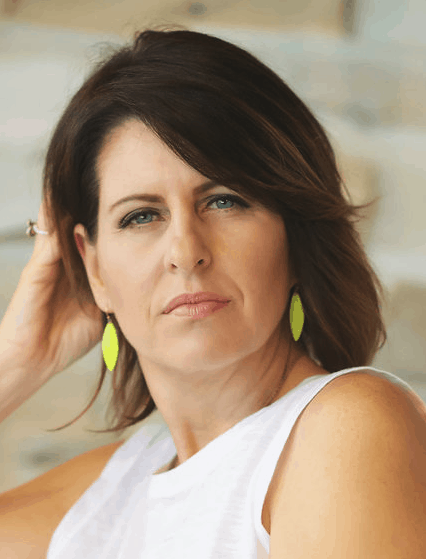
Absolute Forgiveness
In my book, The Power of Forgiveness, I talk about the idea of absolute forgiveness. Absolute forgiveness is the realization that there is nothing to forgive.
I acknowledge from the rational mind that this concept sounds absurd to many who have endured trauma or injustice. How can we go from the clarity of knowing what happened destroyed some aspect of self or other, to knowing, in our bones, there is nothing to forgive?
When I was a little girl, my father kidnapped me. He picked me up for Easter vacation, but instead of hunting for eggs and playing in the park, he took me to another country. He sexually violated me (and other little girls). He terrorized me with his violent temperament and masterful mental manipulation. At seven years of age, as I waited for my mother to save me, cold and alone in homes I did not know, I set out on a very different journey through life than I otherwise would have.
This idea of absolute forgiveness seems unconscionable when we approach our healing from the story we have about our lives. We say, “I need to forgive my father for abusing me,” only to bump up directly with our indignation and all the many reasons we should not have to do the work of forgiving injuries caused by others. Or, if we need to forgive ourselves, we hit a wall that says we are not worthy or we will make the same mistakes if we forgive.
This approach rarely works because we are trained to trust rationality; we are taught to form beliefs and rely on them to guide us through life. We live in a world that values self-righteousness as a sign of morality or superiority. In fact, this is only getting more and more true. But this isn’t a doorway that leads to healing (for ourselves or the world).
Trying to forgive by focusing on what happened first also doesn’t work, because the problem isn’t really in the past. It is in the present. And it isn’t outside of us. The need for forgiveness begins when we perceive something in ourselves or our lives to be other than it should be. From this viewpoint, we trace a thread back in time to events we believe took us from our true path.
Absolute forgiveness is understanding this is not possible. I spent many years hating the world, and the people who loved me because of the things that happened to me as a little girl. With each sanctimonious step, I wreaked more havoc on the world.
Then, in 2000, I almost died. I drove to a dry riverbed on a hot summer day and tried to hang myself. In the moments there—somewhere, and nowhere—I saw something magnificent. I could see everything—past, present, and future—for all humanity unfolding in perfect harmony. It all made sense.
I wish at that moment everything had magically changed. Isn’t that what we all want? Divine intervention or revelation? “God, please show me…heal me…forgive me…”
That’s not what happened. Things actually got worse. I realized I couldn’t even kill myself, so I doubled down. I got meaner. The addiction I was experiencing at that time blossomed into a walk with death every day.
But that day on the riverbed was the beginning of my healing, because no matter how hard I tried, I could not forget what I saw.
Two years later, at the hands of the man I was dating at the time, I almost died again. But I didn’t. My worn soul finally got it: It’s not up to me. I don’t get to decide when I die. All I get to choose is how I am going to live.
The path we have walked may have been (and still might be) painful and challenging. Mine has. But, that does not mean it is somehow not our path. In fact, by definition, it is.
Forgiveness is a process that takes time and understanding. But it is possible to get to a place of true absolution and peace, no matter the circumstances. The key is to begin with today. Learn the skills you need to become forgiving: emotional awareness, empathy, non-judgment, and unraveling the story.
I started systematically forgiving everyone in my life in 2003. First my parents, then all the other people on my journey. Today, I have the same compassion for my father as I do for my son. I wish his soul nothing but peace and freedom. That is absolute forgiveness. And it is possible.
Forgiveness doesn’t mean we don’t ever suffer It doesn’t mean we don’t have to work through the impact of our experiences. I am still doing that work myself and suppose I might always.
The willingness to forgive comes from the recognition that as long as we have a wounded spiritual or emotional connection to the past, we can’t be present to do the work that is ours to do. We heal those wounds and end up here in the now. Tattered and tired, maybe, but here.
From this place of right now, we rest. We learn. We get stronger. We contribute. We love. We forgive.
Post-script: Sometimes, even after the realization that there is nothing to forgive, feelings of injury may pop up. This is a sign there is something in the present moment you don’t want to own. Be gentle in these moments, but also remember you’ve done the work.











6 comments to "Absolute Forgiveness"